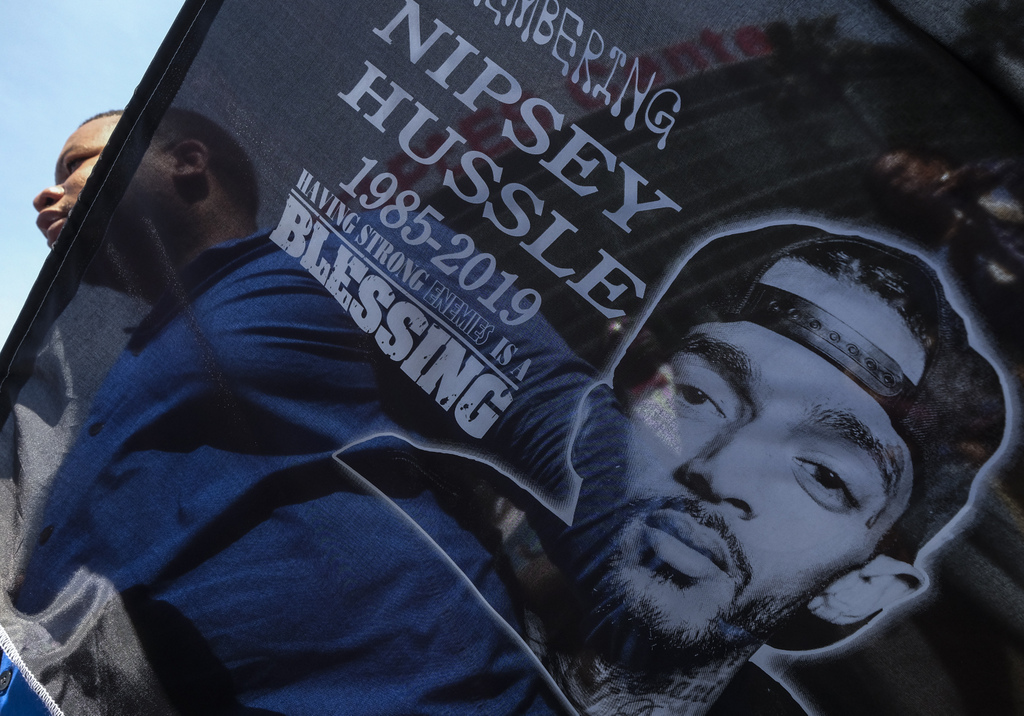[ad_1]
By Shana Trammel, AFRO Columnist
Ermias Joseph Asghedom, was only 33 years of age when he was shot and murdered outside of his establishment, Marathon Clothing Company, located in South Los Angeles on March 31, 2019. Hussle was the definition of a Self-Made Man. Hailing from the turbulent Crenshaw neighborhood of South LA, Hussle used his experiences from his upbringing to influence not only his music but passion to assist others who shared his backstory. Musically, Hussle had a huge following even prior to releasing his debut studio album Victory Lap in February of 2018. Hussle‘ s lyrics advocated themes such as economic empowerment, loyalty, hustle and drive. “Dedication, hard work plus patience…the sum of all my sacrifice, I’m done waiting.”* (*Dedication, Victory Lap 2018)

His music catalog was a direct reflection of the man. Referred to as “Neighborhood Nip,” Hussle was beloved in his community for his numerous philanthropic acts. These efforts included investing in an installation of a community art fixture, creating jobs for convicts, renovating the neighborhood roller rink, elementary school basketball courts, and funding the funerals of victims of gun violence. Hussle often spoke freely about investing in one’s community over spending frivolously on material possessions. Hussle was in the process of redeveloping numerous real estate properties and low-income housing for locals. In addition to his humanitarian efforts and proficient lyrical skills, Hussle was a savvy businessman, who believed in self ownership. Creating his own music label All Money In in 2010, Hussle released his mixtape Crenshaw in October 2013. At the cusp of the streaming revolution, when it was common for artists to release their music for free, a resilient Hussle priced the first 1,000 copies of the highly anticipated mixtape at $100 a copy. Crenshaw sold out in a mere 24 hours in which Hussle earned the full profits.
Days after the untimely death of beloved entertainer Nipsey Hussle, I finally feel able to express my thoughts and feelings on the present-day Robin Hood. Although I initially only listened to Nipsey Hussle’s music due to my fiancé’s immense love for his artistry. I could hear his passion through the words that vibrated over the rhythmic beats he flowed over. He was the catalyst that motivated my fiancé to retire from his 12-year professional basketball career to go into business for himself. He often credits Hussle for abandoning the business of having to report to “owners” and branding himself and his talents. This was the effect of his music for countless others.
The death of Hussle is almost synomnous with that of slained rap matryr Tupac Shakur. I would dare call him our generation’s Tupac. Unlike Tupac, however, Hussle had no controversies attached to his persona. No alleged rapes or beefs. Millennials nationwide were mortified when news broke of the death of Hussle and there has been an outpour of support to his family and for his work. Although many are just now becoming aware of Hussle’s music, the streets always keeps record of the hood heroes like Nipsey. I deeply appreciated being able to vibe out to his music that was free of the modern day saturation of prescription drugs and blatant disrespect for women. I found it not only refreshing but motivating. Hussle was only 3 years older than I am now, had two children, and a woman that he publicly professed his love for. I am deeply saddened that his life was cut short and the world was robbed of his gifts, passion, and humanity. I wish he only knew how much he meant to the black community and how much he will be missed.
Shana Trammell is an AFRO columnist. She resides in Chicago.
The opinions on this page are those of the writers and not necessarily those of the AFRO.
Send letters to The Afro-American • 1531 S. Edgewood St. Baltimore, MD 21227 or fax to 1-877-570-9297 or e-mail to [email protected]
[ad_2]
Source link
